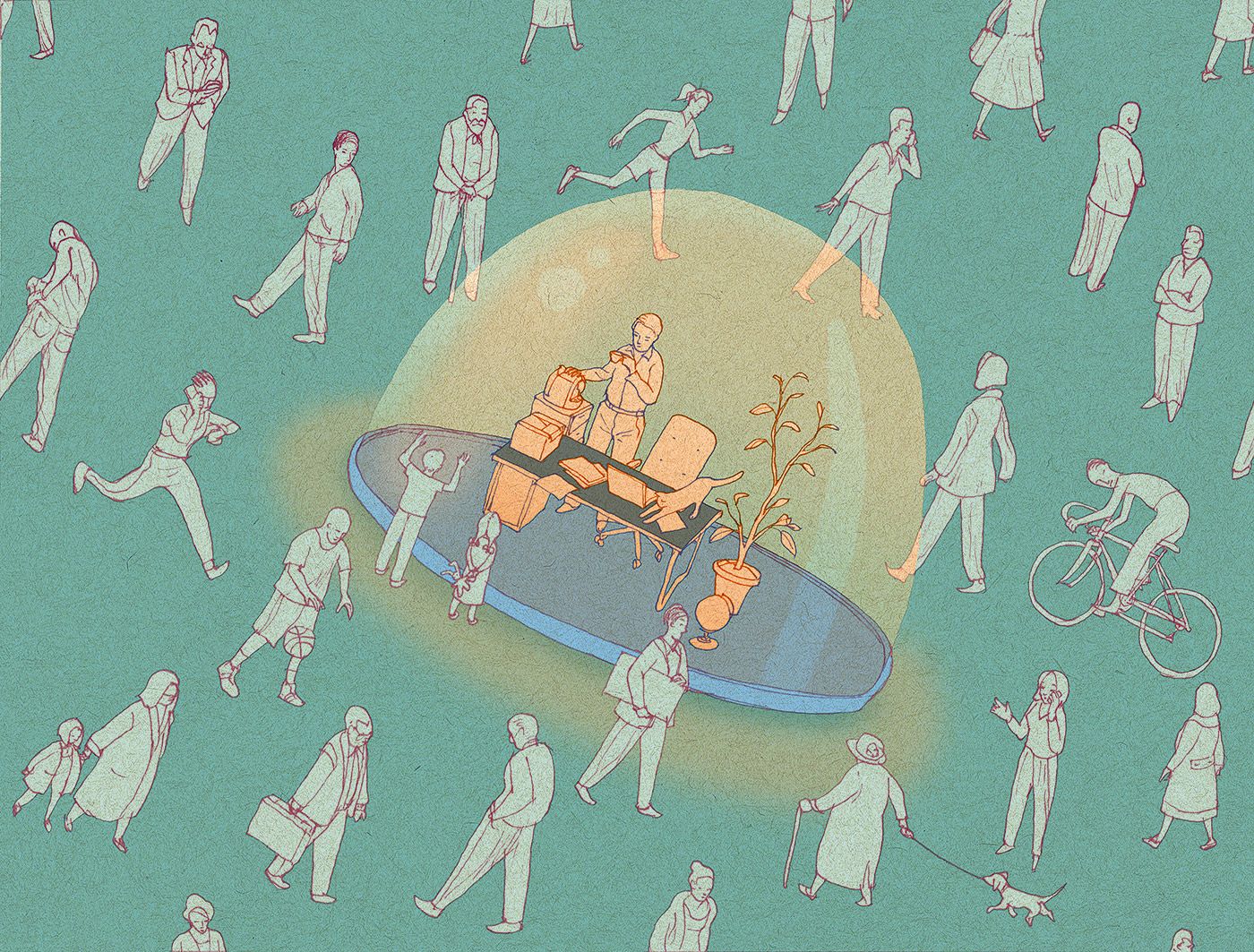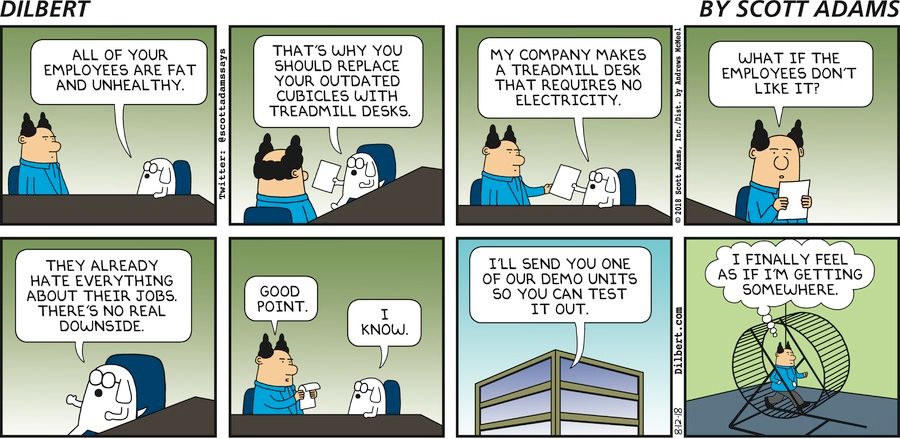Why do we work so hard? (1843 Magazine)

Maybe it’s because work is satisfying. Maybe it’s because we’re trapped. Or maybe, as Ryan Avent suspects, it’s because of a troubling combination of the two.
Why? One possibility is that we have all got stuck on a treadmill. Technology and globalisation mean that an increasing number of good jobs are winner-take-most competitions. Banks and law firms amass extraordinary financial returns, directors and partners within those firms make colossal salaries, and the route to those coveted positions lies through years of round-the-clock work. The number of firms with global reach, and of tech start-ups that dominate a market niche, is limited. Securing a place near the top of the income spectrum in such a firm, and remaining in it, is a matter of constant struggle and competition. Meanwhile the technological forces that enable a few elite firms to become dominant also allow work, in the form of those constantly pinging emails, to follow us everywhere. (...)
Here is the alternative to the treadmill thesis. As professional life has evolved over the past generation, it has become much more pleasant. Software and information technology have eliminated much of the drudgery of the workplace. The duller sorts of labour have gone, performed by people in offshore service-centres or by machines. Offices in the rich world’s capitals are packed not with drones filing paperwork or adding up numbers but with clever people working collaboratively. (...)
This life is a package deal. Cities are expensive. Less prestigious work that demands less commitment from those who do it pays less – often much less. For those without independent wealth, dialing back professional ambition and effort means moving away, to smaller and cheaper places.
But stepping off the treadmill does not just mean accepting a different vision of one’s prospects with a different salary trajectory. It means upending one’s life entirely: changing locations, tumbling out of the community, losing one’s identity. That is a difficult thing to survive. One must have an extremely strong, secure sense of self to negotiate it. (...)
One reason the treadmill is so hard to walk away from is that life off it is not what it once was. (...) Those elements of life persist, of course, but they are somewhat diminished, as Robert Putnam, a social scientist, observed in 1995 in “Bowling Alone: America’s Declining Social Capital”. He described the shrivelling of civic institutions, which he blamed on many of the forces that coincided with, and contributed to, our changing relationship to work: the entry of women into the workforce; the rise of professional ghettoes; longer working hours. (...)
The labour movement has unravelled in recent decades, and with it the network that supported its members; but these days a similar virtuous circle supports the professional classes instead. Our social networks are made up not just of neighbours and friends, but also of clients and colleagues. This interlaced world of work and social life enriches us, exposing us to people who do fascinating things, keeping us informed of professional gossip and providing those who have good ideas with the connections to help turn them into reality. It also traps us. (...)
And I begin to understand the nature of the trouble I’m having communicating to my parents precisely why what I’m doing appeals to me. They are asking about a job. I am thinking about identity, community, purpose – the things that provide meaning and motivation. I am talking about my life.
https://www.1843magazine.com/features/why-do-we-work-so-hard
HN discussion: https://news.ycombinator.com/item?id=11273301
Update: relevant Dilbert https://dilbert.com/strip/2018-08-12

